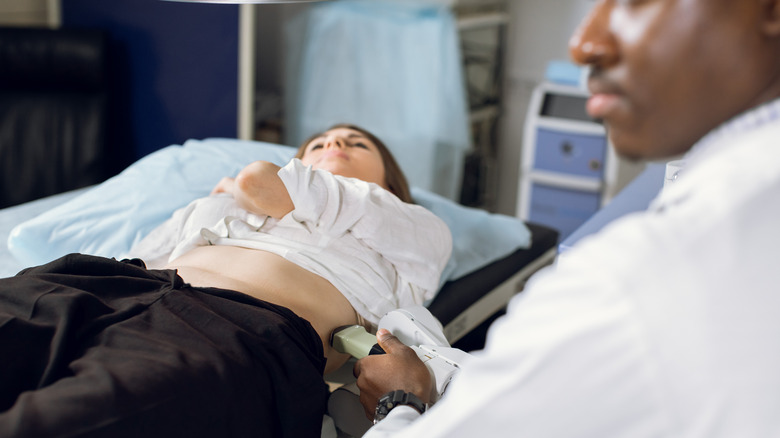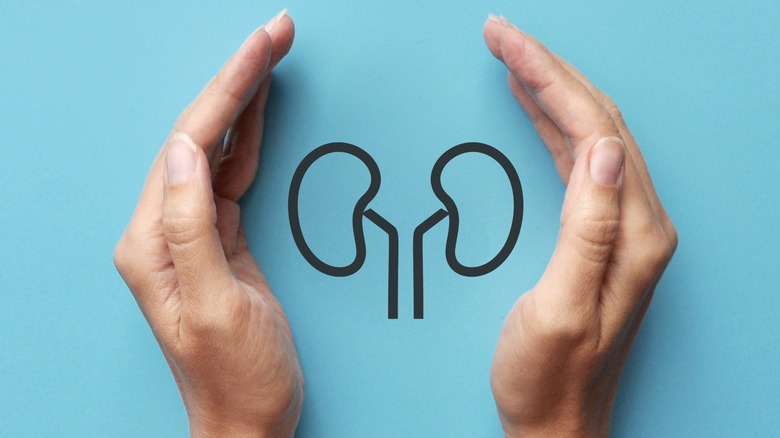New Study Finds Non-Surgical Treatment For Kidney Stones A Game Changer
If you've ever experienced kidney stones, you know that they can be debilitating. Kidney stones are made from mineral deposits in your kidneys. If they grow large enough, they can become lodged in the ureter, which connects your kidney to your bladder (via Mayo Clinic). Stones can become stuck either close to the bladder or far from it. Regardless, a stone in either location can cause intense pain. In some cases, kidney stones need to be surgically removed from the ureter, according to the Cleveland Clinic.
However, that may soon change. A new study published in The Journal of Urology suggests that surgery may not be needed to remove kidney stones trapped in the ureter. A different process involves ultrasound techniques that break up kidney stones into smaller pieces that can successfully move through the ureter. The methods — ultrasonic propulsion and burst wave lithotripsy — can be carried out without anesthesia while the patient is awake.
More than half of the cases were successful
The idea behind using both methods is that ultrasonic propulsion helps move the stone, while burst wave lithotripsy breaks it into smaller pieces. In the study published in The Journal of Urology, 29 adult patients with ureter stones underwent the procedures. Of the 29, 16 received ultrasonic propulsion alone, and 13 received ultrasonic propulsion and burst wave lithotripsy. Stones were successfully moved in 19 of the patients, and one patient felt immediate pain relief. Burst wave lithotripsy successfully broke up seven stones in 13 patients who had undergone both procedures. Stones were passed after two weeks in 18 out of 21 patients who had stones close to their bladders, with stones passing in an average of four days after the procedure. The patients who did not pass stones were scheduled for surgery.
Researchers noted that patients reported no serious side effects, and they felt less pain after treatment. The authors of the study also acknowledged that there was no control group for comparison, and more research was needed. However, they said the procedures could prove to be a game changer for managing ureter kidney stones, which are the main source of pain when it comes to kidney stones, according to the Mayo Clinic.


